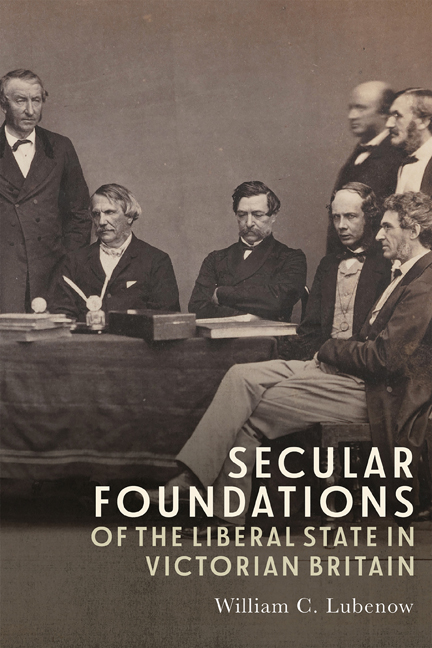Book contents
- Frontmatter
- Dedication
- Contents
- Preface
- Introduction: Methods, Materials, and Theses
- 1 From the Fiscal–Military–Confessional State to the Secular–Liberal State
- 2 From the Northcote–Trevelyan Report to the Order in Council of 1870
- 3 The Haldane Committee and the Creation of the Cabinet Office: Hankey to Hunt
- 4 “Fit and Proper Persons”: The Secular Clerisy
- 5 The Secular Clerisy’s Outillage Mental and Mandarin Solidarity
- 6 Regions of Doubt and Belief – Varieties of Secular Experience: Essays and Reviews, Ecce Homo, and the Gifford Lectures
- Conclusion and Epilogue
- Select Bibliography
- Index
6 - Regions of Doubt and Belief – Varieties of Secular Experience: Essays and Reviews, Ecce Homo, and the Gifford Lectures
Published online by Cambridge University Press: 09 May 2024
- Frontmatter
- Dedication
- Contents
- Preface
- Introduction: Methods, Materials, and Theses
- 1 From the Fiscal–Military–Confessional State to the Secular–Liberal State
- 2 From the Northcote–Trevelyan Report to the Order in Council of 1870
- 3 The Haldane Committee and the Creation of the Cabinet Office: Hankey to Hunt
- 4 “Fit and Proper Persons”: The Secular Clerisy
- 5 The Secular Clerisy’s Outillage Mental and Mandarin Solidarity
- 6 Regions of Doubt and Belief – Varieties of Secular Experience: Essays and Reviews, Ecce Homo, and the Gifford Lectures
- Conclusion and Epilogue
- Select Bibliography
- Index
Summary
Meaning floats inescapably in the air as a lasting miracle of creation.
Ludwig WittgensteinWhereof one cannot speak, thereof one must be silent.
Ludwig WittgensteinWe shall not cease from exploration
And the end of all our exploring
Will be to arrive where we started
And know the place for the first time.
T.S. Eliot, “Little Gidding”Outside our Father's house there are many mansions.
G.M. TrevelyanWITTGENSTEIN was a deeply mystical person. He was a remarkably interesting figure in the history of British belief and doubt. His example is only one of many which illustrates what Stephen J. Gould called “non-overlapping magisteria”: a view which is thoughtful but unsatisfactory. Doubt's magisterium and belief 's magisterium were not cleanly separated. They, as one scholar has pointed out, were “indistinct, sprawling, untidy, and endlessly fascinatingly entangled.” Wittgenstein left Vienna to study philosophy with Frege and then went to Britain to study with Russell. The Apostles saw him for what he was – a genius – and elected him. He was repulsed by what he regarded as their lack of seriousness. Dissatisfied with what he had found in Cambridge and feeling he had learnt all he could learn from Russell, he went to Norway. When the War broke out, he returned to Austria to fight with the armies of the Central Powers against the Western powers. Captured, he was put in an Italian prison camp where he wrote his Tractatus Logico-Philosophicus, which was smuggled back to Britain where Frank Ramsey translated it and where Russell and Dorothy Wrinch had it published. Released from captivity, Wittgenstein escaped from his family in the strangest way possible: he impoverished himself by ceding his portion of the family's massive fortune to his siblings. He became a schoolmaster, seeking some kind of inner peace, in the small villages of Trackenbach and Puchberg am Scheeberg. At the urging of his friends, he returned to Cambridge. When Wittgenstein arrived on the Cambridge railway platform, Keynes met him and remarked, “Well, God has arrived.” Wittgenstein presented his Tractatus to the university examiners, who included Russell and G.E. Moore, the latter having been the intellectual lode star for the Apostles and Bloomsbury, and took his PhD degree.
- Type
- Chapter
- Information
- Secular Foundations of the Liberal State in Victorian Britain , pp. 209 - 261Publisher: Boydell & BrewerPrint publication year: 2024



